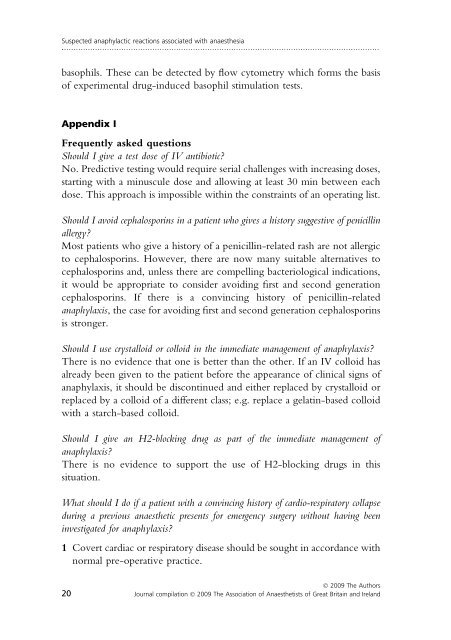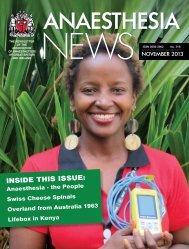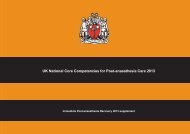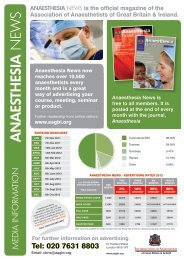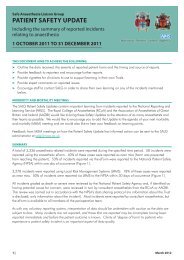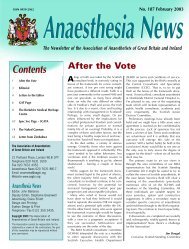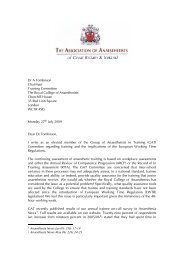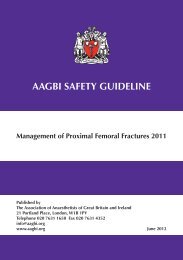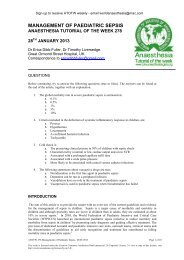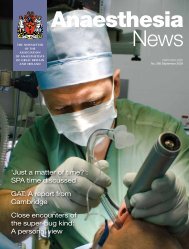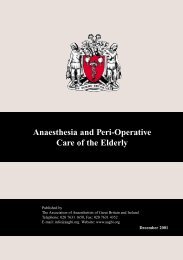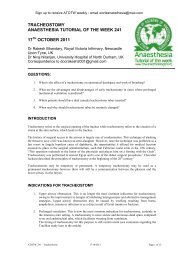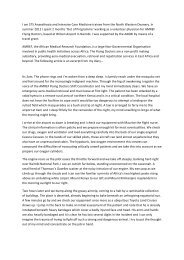Suspected anaphylactic reactions associated with anaesthesia - aagbi
Suspected anaphylactic reactions associated with anaesthesia - aagbi
Suspected anaphylactic reactions associated with anaesthesia - aagbi
- No tags were found...
Create successful ePaper yourself
Turn your PDF publications into a flip-book with our unique Google optimized e-Paper software.
<strong>Suspected</strong> <strong>anaphylactic</strong> <strong>reactions</strong> <strong>associated</strong> <strong>with</strong> <strong>anaesthesia</strong>.....................................................................................................................................basophils. These can be detected by flow cytometry which forms the basisof experimental drug-induced basophil stimulation tests.Appendix IFrequently asked questionsShould I give a test dose of IV antibiotic?No. Predictive testing would require serial challenges <strong>with</strong> increasing doses,starting <strong>with</strong> a minuscule dose and allowing at least 30 min between eachdose. This approach is impossible <strong>with</strong>in the constraints of an operating list.Should I avoid cephalosporins in a patient who gives a history suggestive of penicillinallergy?Most patients who give a history of a penicillin-related rash are not allergicto cephalosporins. However, there are now many suitable alternatives tocephalosporins and, unless there are compelling bacteriological indications,it would be appropriate to consider avoiding first and second generationcephalosporins. If there is a convincing history of penicillin-relatedanaphylaxis, the case for avoiding first and second generation cephalosporinsis stronger.Should I use crystalloid or colloid in the immediate management of anaphylaxis?There is no evidence that one is better than the other. If an IV colloid hasalready been given to the patient before the appearance of clinical signs ofanaphylaxis, it should be discontinued and either replaced by crystalloid orreplaced by a colloid of a different class; e.g. replace a gelatin-based colloid<strong>with</strong> a starch-based colloid.Should I give an H2-blocking drug as part of the immediate management ofanaphylaxis?There is no evidence to support the use of H2-blocking drugs in thissituation.What should I do if a patient <strong>with</strong> a convincing history of cardio-respiratory collapseduring a previous anaesthetic presents for emergency surgery <strong>with</strong>out having beeninvestigated for anaphylaxis?1 Covert cardiac or respiratory disease should be sought in accordance <strong>with</strong>normal pre-operative practice.Ó 2009 The Authors20 Journal compilation Ó 2009 The Association of Anaesthetists of Great Britain and Ireland


